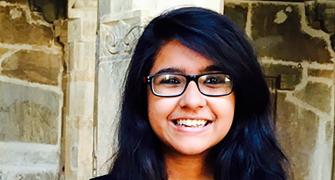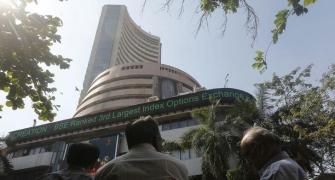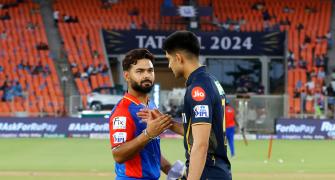On June 3, actor Matt Damon addressed the graduating class of 2016 at the Massachusetts Institute of Technology (MIT) in his inimitable style.
His 20-minute speech was full of humour, interesting anecdotes and learnings from his own life and career.
Have you heard it yet?
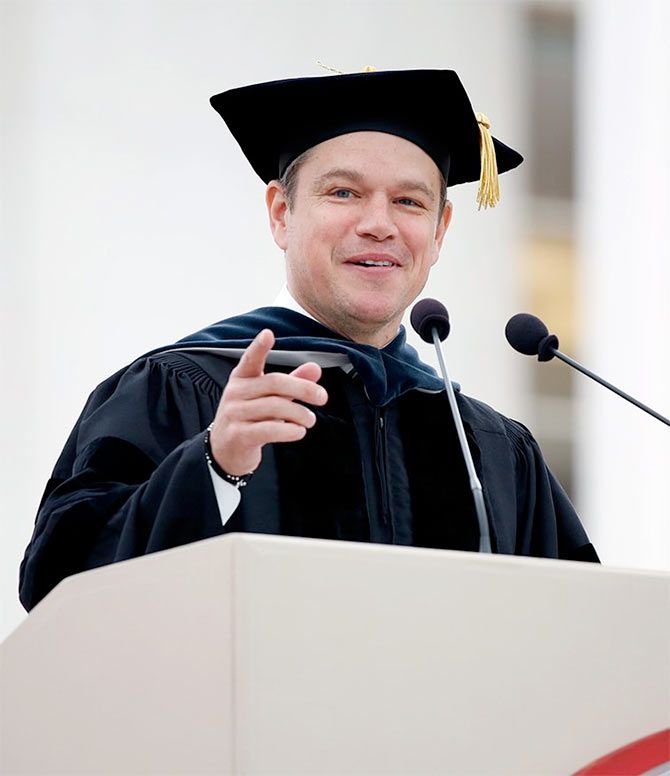
First up, let's admit, we have huge respect for Matt Damon, the actor who minced no words as he spoke about the importance of choices, bankers and... Donald Trump, of course.
"If there are multiple simulations, how come we're in the one where Donald Trump becomes the Republican nominee?
"Can we, like, transfer to a different one?" he said.
Before one could conclude where this was leading to, he asserted, "I'm never running for office!"
"But while I'm on this, let me say this to the bankers who brought you the biggest heist in history: It was theft and you knew it. It was fraud and you knew it.
"And you know what else? We know that you knew it.
"And yeah, OK, you sort of got away with it."
Well, if you think this was the best part, you must listen to the rest of it here.
For those who missed the speech, we bring you the most interesting bits. Read on and be inspired!
"What we do matters. What we do affects the outcome."
MIT, you've got to go out and do really interesting things. Important things. Inventive things. Because this world ... real or imagined ... this world has some problems we need you to drop everything and solve.
Go ahead: take your pick from the world's worst buffet.
"Turn toward the problems you see"
Before you step out into our big, troubled world, I want to pass along a piece of advice that Bill Clinton offered me a little over a decade ago. Well, actually, when he said it, it felt less like advice and more like a direct order.
What he said was "turn toward the problems you see."
It seemed kind of simple at the time, but the older I get, the more wisdom I see in this.
And that's what I want to urge you to do today: turn toward the problems you see.
And don't just turn toward them. Engage with them. Walk right up to them, look them in the eye ... then look yourself in the eye and decide what you're going to do about them.
"There's just no substitute for actually going and seeing things"
I owe this insight, like many others, to my Mom.
When I was a teenager, Mom thought it was important for us to see the world outside of Boston. And I don't mean Framingham. She took us to places like Guatemala, where we saw extreme poverty up close. It changed my whole frame of reference.
I think it was that same impulse that took my brother and me to Zambia in 2006, as part of the ONE Campaign -- the organisation that Bono founded to fight desperate, stupid poverty and preventable disease in the developing world. On that trip, in a small community, I met a girl and walked with her to a nearby bore well where she could get clean water.
She had just come from school. And I knew the reason that she was able to go to school at all: clean water. Namely, the fact that clean water was available nearby, so she didn't have to walk miles back and forth all day to get water for her family, as so many girls and women do.
I asked her if she wanted to stay in her village when she grew up. She said, "No! I want to go to Lusaka and become a nurse!"
Clean water -- something as basic as that -- had given this child the chance to dream.
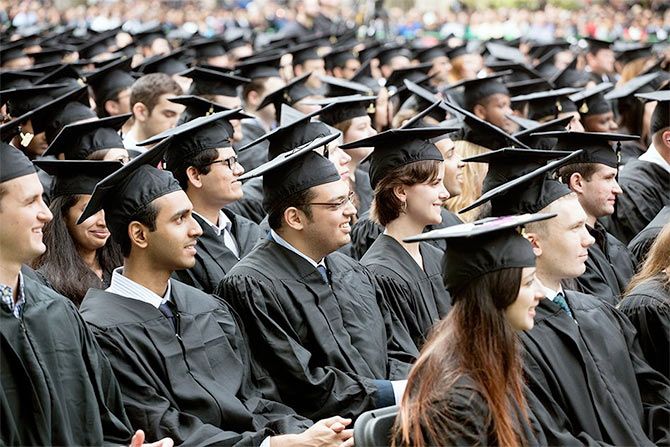
"You're going to fail sometimes, and that's a good thing"
For all the amazing successes I've been lucky to share in, few things have shaped me more than the auditions that Ben and I used to do as young actors -- where we would get on a bus, show up in New York, wait for our turn, cry our hearts out for a scene, and then be told, "OK, thanks." Meaning: game over.
We used to call it "being OK thanksed."
Those experiences became our armour.
"You've got to keep listening"
The world wants to hear your ideas -- good and bad. But today's not the day you switch from "receive" to "transmit." Once you do that, your education is over. And your education should never be over. Even outside your work, there are ways to keep challenging yourself. Listen to online lectures. I just retook a philosophy course online that I took at Harvard when I was nineteen. Or use MIT OpenCourseWare. Go to Wait But Why ... or TED.com.
I'm told there's even a Trump University. I have no earthly idea what they teach there. But whatever you do, just keep listening. Even to people you don't agree with at all.
"Not every problem has a high-tech solution"
Take water again as an example. People are always looking for some scientific quick fix for the problem of dirty and disease-ridden water.
A "pill you put in the glass," a filter, or something like that. But there's no magic bullet. The problem's too complex.
Yes, there is definitely, absolutely a role for science. There's incredible advances being made in clean water technology. Companies and universities are getting in on the game. I'm glad to know that professors like Susan Mercott at D-Lab are focusing on water and sanitation.
But as I'm sure she'd agree, science alone can't solve this problem. We need to be just as innovative in public policy, just as innovative in our financial models. That's the idea behind an approach we have at Water.org called WaterCredit.
WaterCredit is based on Gary White's insight that poor people were already paying for their water and they, no less than the rest of us, want to participate in their own solutions.
So WaterCredit helps connect the poor with microfinance organisations, which enables them to build water connections and toilets in their homes and communities. The approach is working -- helping 4 million people so far -- and this is only the start.
"There's more at stake today..."
...Than in any story ever told. And how lucky you are -- and how lucky we are -- that you're here, and you're you.
So I hope you'll turn toward the problem of your choosing ... Because you must.
I hope you'll drop everything ... Because you must... And I hope you'll solve it. Because you must.
This is your life, Class of 2016. This is your moment, and it's all down to you.
ALSO SEE
Must read: The Harvard grad's speech that went viral
The most honest, heartfelt speech you'll ever hear



